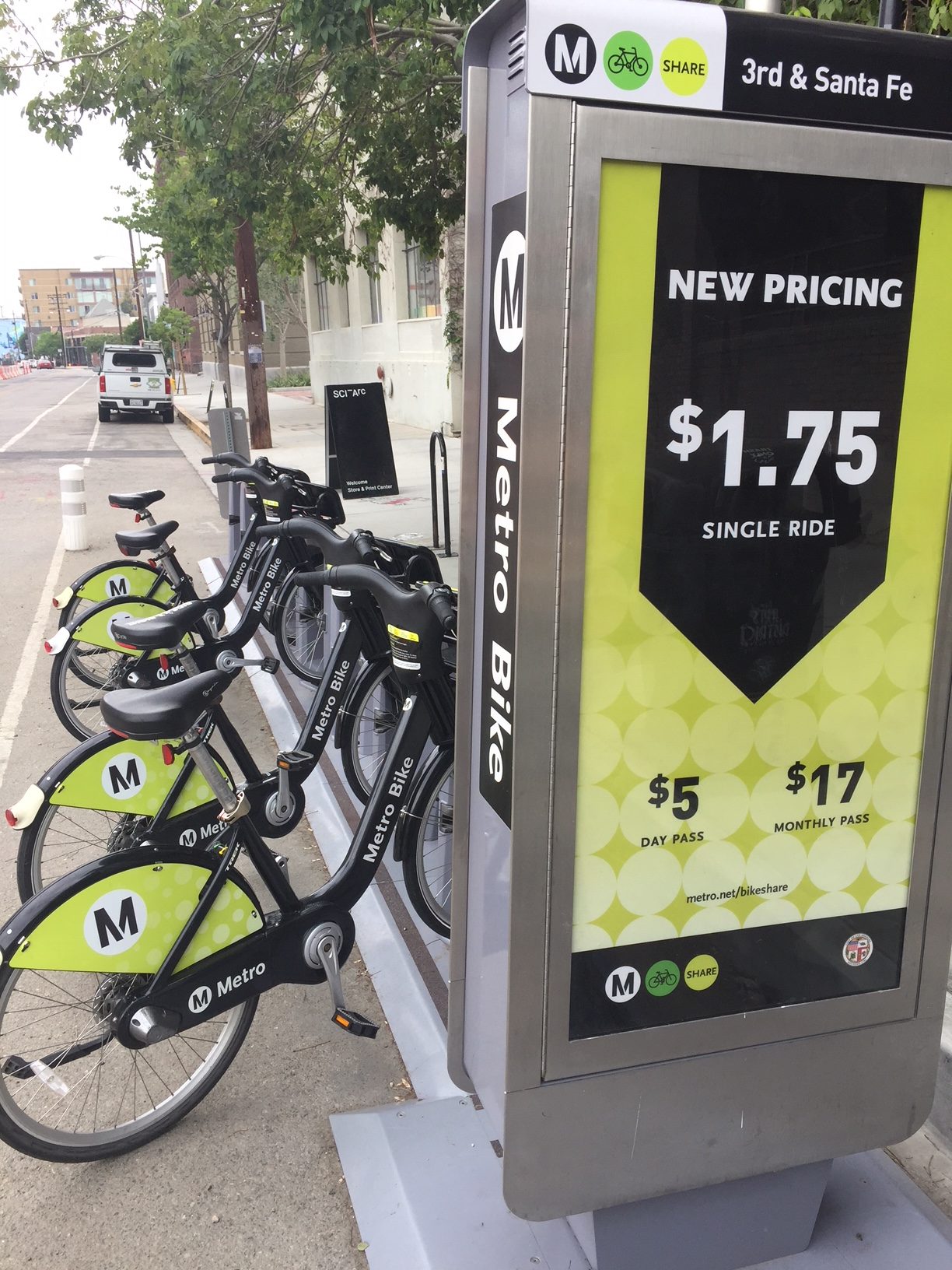
In late September, Metro announced big changes for the Westside portion of Metro Bike-Share. As of September 28, Metro has temporarily closed its fleet in Venice, West L.A. and Santa Monica. Metro will be swapping out the type of bicycle and dock, and re-opening the Westside area starting in November. The transition is expected to be completed by January 2021.
Currently Metro Bike Share operates in central Los Angeles using a smart-dock system; Metro calls this "Classic" bikes and stations. This type of bike-share has most of the hardware embedded in the dock, so the bikes are relatively inexpensive.
On the Westside, Metro had implemented a smart-bike (or "dockless") system. Smart bikes have hardware embedded on each bike.
For a few years, it looked like smart-bike was the wave of the future. Private companies like Uber (Jump) and Lyft are doing smart-bikes. Dockless has a lot of flexibility. But it turns out that, for now, for Metro Bike Share, the smart dock system is relatively theft- and vandal-resistant, hence more reliable.
In announcing the transition, Metro stated that its smart-bikes "have not proven popular with Westside riders" and that docked bikes "are simpler and less expensive to replace."
Last week, Metro spokesperson Dave Sotero told Streetsblog, "The theft rate of smart-bikes on the Westside increased in the last several months, especially during the pandemic period" and that Metro thinks "a bicycle theft ring is targeting our smart-bike fleet." Bike theft is an issue all over. Sotero stated that, for the past six months, the largest central L.A. area smart-dock system had 196 thefts, while Metro's smaller smart-bike service areas had 264 thefts on the Westside, and 56 thefts in North Hollywood. Sotero noted that replacing stolen bikes costs about $1,200 for a smart-dock bike and about $2,500 for a smart-bike.
Another factor in the transition is the desirability of electric-assist bikes. Metro Bike Share e-bikes have proved fairly popular in central Los Angeles; some studies show that they serve a broader audience of riders who are not comfortable riding solely pedal-power bike-share. Off-the-shelf dockless e-bikes are not currently available from Metro's vendor. Converting the Westside to smart-docks will allow the system there to feature e-bikes.
In 2018, Metro had planned several expansions anticipated in 2019. The central L.A. (East Hollywood, Echo Park, Koreatown, Silver Lake, Westlake) and North Hollywood expansions are complete, though coverage is arguably spotty in parts of those areas. Metro did less of its planned Westside expansion, which then was to include Marina Del Rey, Playa Del Rey, Playa Vista, Mar Vista, Palms and Culver City. Sotero states that expansion to Culver City is expected to get underway in Spring 2021, pending final approval by both Culver City and Metro. Sotero states that expansion to Hollywood is also expected in the Spring of 2021.
The other Westside smart-bike system, Santa Monica's Breeze bike-share, is shutting down permanently in early November. Santa Monica cited issues with its five-year-old bikes "getting old," competition with e-scooters, and issues with software becoming obsolete due to corporate takeovers. Santa Monica will be served by recently-debuted private Lyft dockless e-bikes, though, as L.A. Jump bike users discovered the hard way, private bike-share comes and goes at the whims of its corporate operators.
Under COVID-19, some cities - especially transit-rich east coast cities - have seen surges in bicycling and bike-share. Bicycle commuting avoids enclosed spaces and accommodates needed distancing. Some have been critical of Metro shutting down its Westside bike-share service at a time when demand could be increasing. But if the system returns promptly and is more reliable, bike-share could well have a significant role to play during the region's recovery from COVID.






